Mathematics and Numeracy
Vision:
Our vison for Mathematics and Numeracy at Brynllywarch Hall is to ensure every pupil has access to quality teaching of essential mathematical skills through a practical, engaging, exciting approach with our pupils. We believe that teaching through a practical way, using concrete apparatus to gain success and develop conceptual understanding of mathematic skills, developing into use of pictorial representations and abstract learning. Our aim is to enable our pupils to gain a deeper foundation of understanding to enable them to apply throughout their future experiences in and out of school as life-long learners. We strive for our pupils to develop success in demonstrating conceptual understanding through being able to explain mathematical concepts and by representing concepts in different ways including verbal, concrete, visual, digital and abstract.
Implementing the Vision
At Brynllywarch, we envision pupils being fluent learners where they can apply their mathematic skills and understanding through different contexts to embed their learning and enable success in a cross curricular context as well as the outside world and them as future learners. Experiences within this fluency approach to mathematics also contributes to developing enterprising, creative contributors, ready to play a full part in life and work as well as giving pupils the skill set to apply their knowledge of maths in situations outside of school, we aspire to help them learn to interpret information and data to assess risk, and to use their numeracy skills across the curriculum to make effective choices, all of which can help them become healthy, confident individuals, ready to lead fulfilling lives as valued members of society.
We allow for our pupils to develop their mathematics through rigorous logical reasoning where pupils can consolidate their own knowledge and achieve a true sense of success woven through their Mathematics and Numeracy Curriculum resulting in successful, confident learners in each area of the curriculum. As they reflect on the approaches used, and on their own mathematics and numeracy learning, learners can develop metacognitive skills which can help them identify steps to take to improve performance. Through this they can become ambitious, capable learners, ready to learn throughout their lives.
Through our Mathematics and Numeracy, we aim to support our learners to develop problem solving skills, with opportunities to apply new knowledge to problems that they are faced with in a range of contexts, in preparation for them become ethical, informed citizens of Wales and the world by providing them with tools to analyse data critically, enabling them to develop informed views on social, political, economic and environmental issues. It encourages clarity of thinking, allowing learners to understand and make reasoned decisions. Experiences in this Area also contribute to developing enterprising, creative contributors, ready to play a full part in life and work. These can encourage learners to be creative because it asks them to play, experiment, take risks and be flexible in tackling mathematical problems.
What Matters Statements
The number system is used to represent and compare relationships between numbers and quantities.
The New Curriculum for Wales states that ‘numbers are the symbol system for describing and comparing quantities. This will be the first abstract concept that learners meet in mathematics, and it helps to establish the principles of logical reasoning.’ At Brynllywarch, we aim for our pupils to achieve success in this area through pupils being exposed to a deeper understanding of mathematical symbols and representation. We aim to build the pupil’s conceptual understanding, supported by concrete apparatus for pupils to visualise the maths in front of them and get a deep understanding that will support our learners in becoming ambitious, capable learners, ready to learn throughout their lives. When pupils are ready, we then aim to transfer their understanding to the use of pictorial representations of the mathematics and then to an abstract approach which them will be able to apply in a range of problem solving, reasoning and varied fluency tasks, both set from the curriculum outline and ones that they come across in their everyday lives, therefore building healthy, confident individuals, ready to lead fulfilling lives as valued members of society where they can overcome problems, explain and reason with others throughout their lives as long-life learners.
Algebra uses symbol systems to express the structure of mathematical relationships.
Algebraic thinking moves away from context to structure and relationships. At Brynllywarch we aim to expand the pupils’ thinking and open up their thoughts to spotting relationships, patterns and connections between numbers and mathematical processes. We look to create opportunities for pupils to make connections with mathematics and the world around us.
Geometry focuses on relationships involving shape, space and position, and measurement focuses on quantifying phenomena in the physical world.
Geometry involves playing with, manipulating, comparing, naming, and classifying shapes and structures. We aim to achieve pupil’s confidence and success in understanding geometry by good quality teaching of shape and measure, taking advantage of our outdoor environment and encouraging staff to take the teaching of mathematics and numeracy outside of the classroom where pupils can get a ‘real life’ view of maths and help them to gauge that mathematics is truly international discipline, it surrounds us and underpins so many aspects of our daily lives, thus encouraging them to become ethical, informed citizens of Wales and the world through mutual understanding and appreciating the learning opportunities outside of the classroom.
Statistics represent data, probability models chance, and both support informed inferences and decisions.
We identify the importance of collecting, manipulating, and analysing data, allowing our pupils to make generalisations, predictions and likelihood of events occurring based on a set of data. The process of reasoning with statistics and probability, and evaluating their reliability, develops critical thinking and analytical skills that are fundamental to enabling learners to make ethical and informed decisions from ethically informed citizens.

